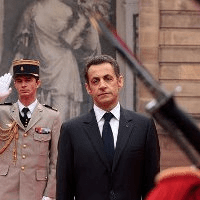On May 16, Nicolas Sarkozy marked his second anniversary as the president of France. Despite having done much of what he promised to do when the French elected him with just over 53 percent of the vote, polls show that nearly 70 percent now disapprove of the results. Circumstances have not helped: The worst economic downturn since the Depression has overwhelmed a program of cautious reforms that was never as bold or ambitious as the candidate claimed. Yet most people in France expect Sarkozy not only to ride out the storm, but to win re-election in 2012. Such a double paradox cries out for explanation. Expectations were high when Sarkozy took office in May 2007. To win, he had to pull off a remarkable political feat, waging a campaign not just against his Socialist Party (PS) opponent, Ségolène Royal, but also against the record of his own party, the UMP, which had occupied the presidency for the previous 12 years. Jacques Chirac, the outgoing president, had grown cautious with age, but his tentativeness was hard to distinguish from torpor. To many, France seemed to have entered an era of decline, punctuated by unrest in the suburbs and student protests in the cities. Sarkozy promised not only to restore order, but to reverse the sense of decline with an infusion of new energy, starting at the top. Even his worst detractors grant that the president is a man of remarkable vigor. His first six months in office saw a maelstrom of reform in all departments of government. Taxes were cut. Employers were granted incentives to offer overtime, undercutting the 35-hour work week. Government retirement plans for various "special" categories of workers were overhauled. Major changes were introduced in the operation of courts, hospitals, and schools. Management of the universities was decentralized. Military bases were closed, and a comprehensive revision of military doctrine was formulated. Sarkozy took pains to seek better relations with major allies such as the United States and the United Kingdom, though relations with Germany were somewhat strained by initiatives such as the Union for the Mediterranean, which Berlin viewed as an end run around the European Union.
Despite Crisis, Sarkozy Clings to Reform Program

